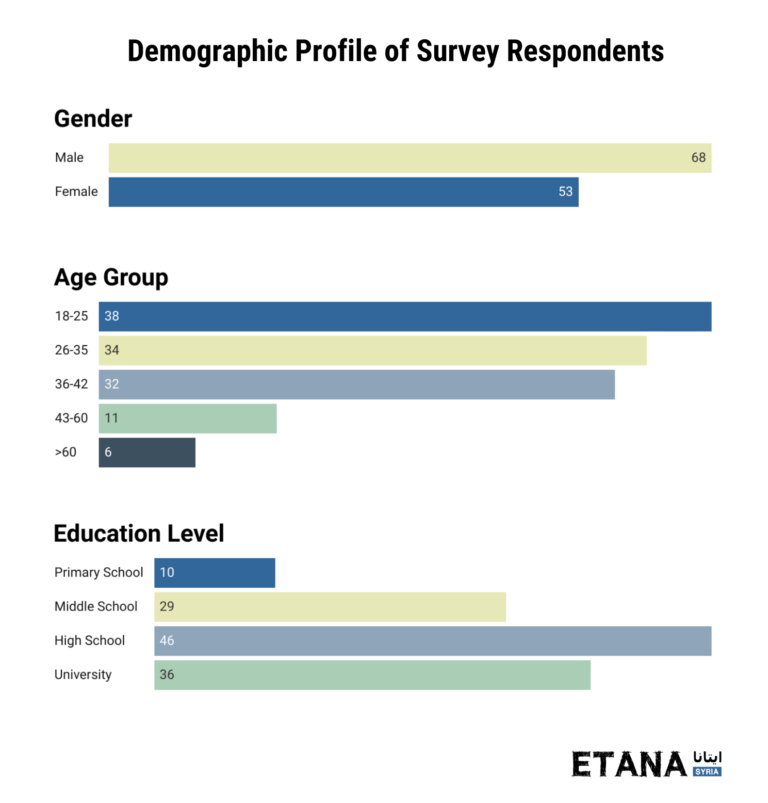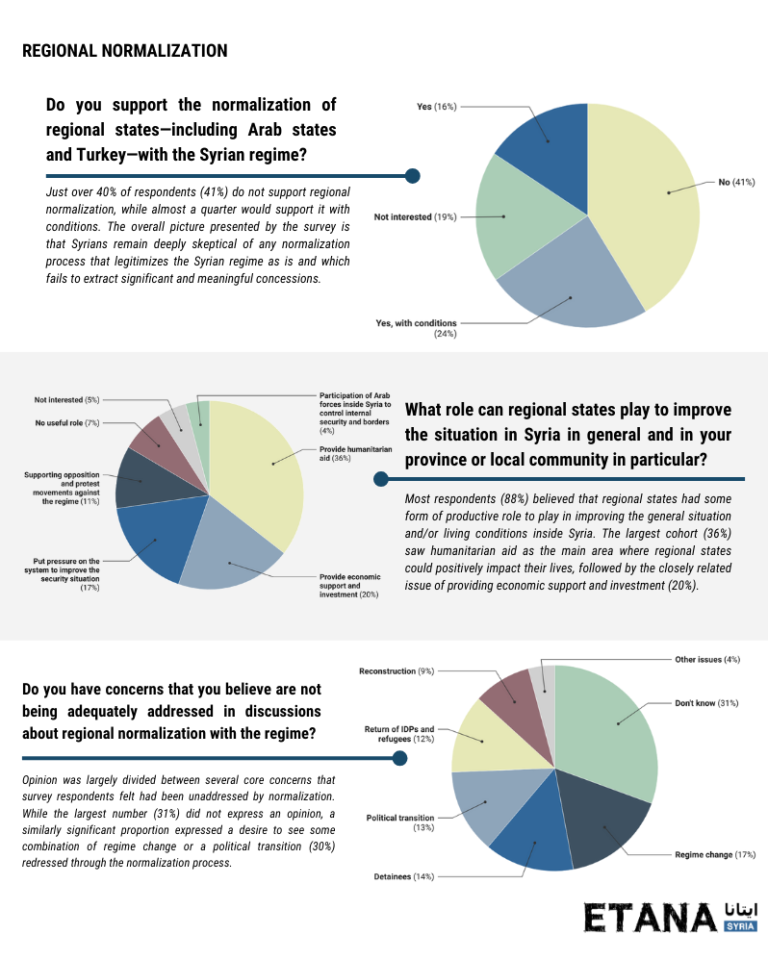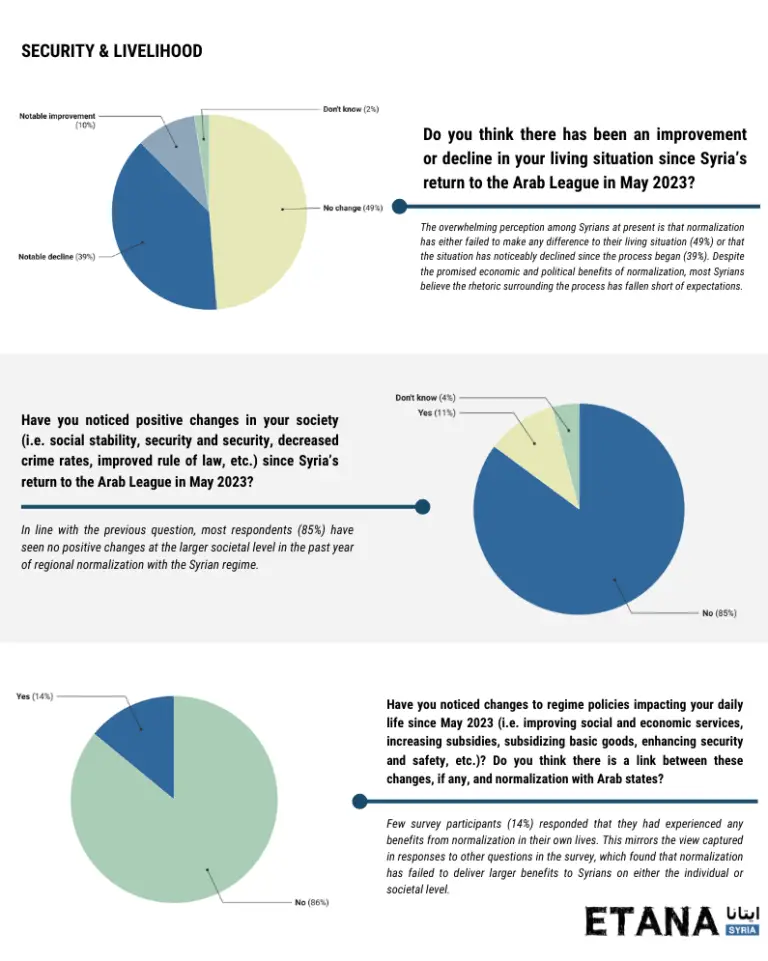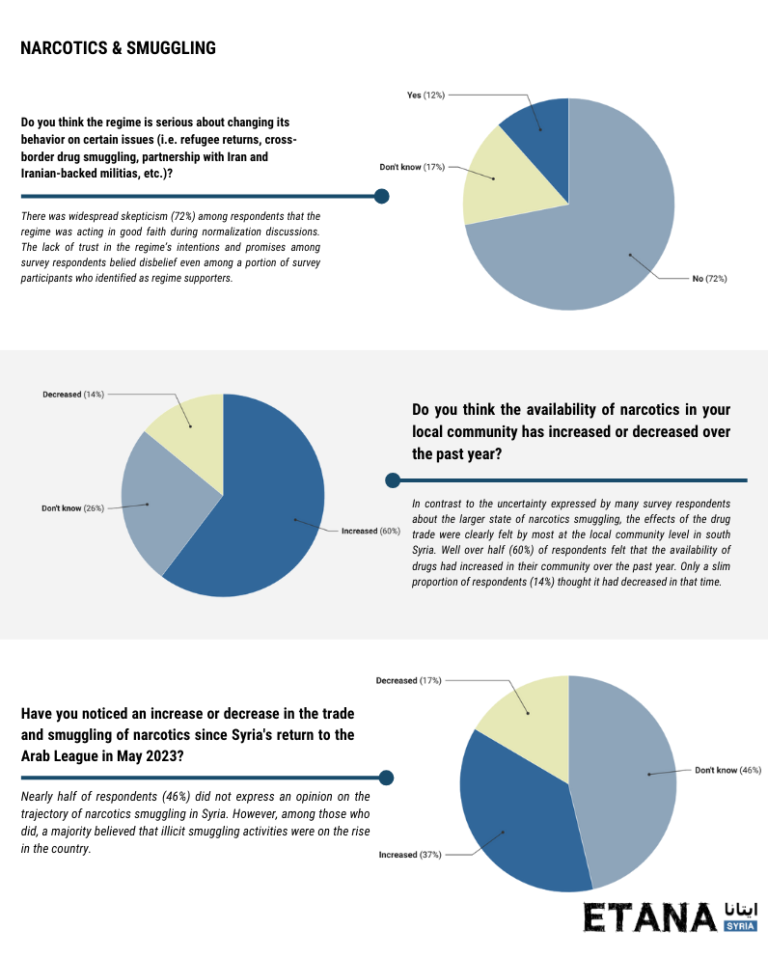To assess the perceptions of Syrians inside Syria regarding normalization, ETANA conducted a comprehensive public opinion survey across the southern provinces of Daraa, Quneitra and Suwayda by polling 121 participants. The results, detailed below, give a wide-ranging snapshot of how Syrian civilians view fundamental questions surrounding the issue of normalization, how any reported changes have affected their lives, as well their evolving perceptions and experiences regarding issues such as drug smuggling, local militia activity and general security conditions.
The results indicate that Syrians have not seen improvements in their living conditions since May 2023. Instead, the humanitarian situation has worsened. Despite the opportunity that Arab normalization presented for potentially improving conditions for Syrians, the majority of those surveyed by ETANA did not believe the Assad regime is serious about the process. It is evident from observing strategic and tactical political and security dynamics that Arab normalization has failed to achieve its desired results.
As many as 41% of respondents did not express support for regional normalization at all. At the same time, 25% of respondents did support normalization—albeit with conditions—while another 16% supported the process unconditionally. Nearly one-fifth of respondents (19%) chose not to respond to the question.
Most survey respondents (72%) did not believe that the Syrian regime is serious about changing its behavior regarding the “three asks” of regional normalization (curbing the narcotics trade, countering Iranian entrenchment and creating conditions conducive for a safe, voluntary and dignified refugee returns).
The overwhelming majority (90%) of survey respondents stated that their living conditions had either worsened or stayed the same since May 2023, while 85% responded negatively when asked if they had seen any positive developments in the past year. 60% of respondents said that the availability of drugs in their communities has actually increased since Arab normalization.
Demographic Profile of Survey Respondents
Of the total respondents, 56% were men and 44% were women; 60% of the respondents were under the age of 35.









